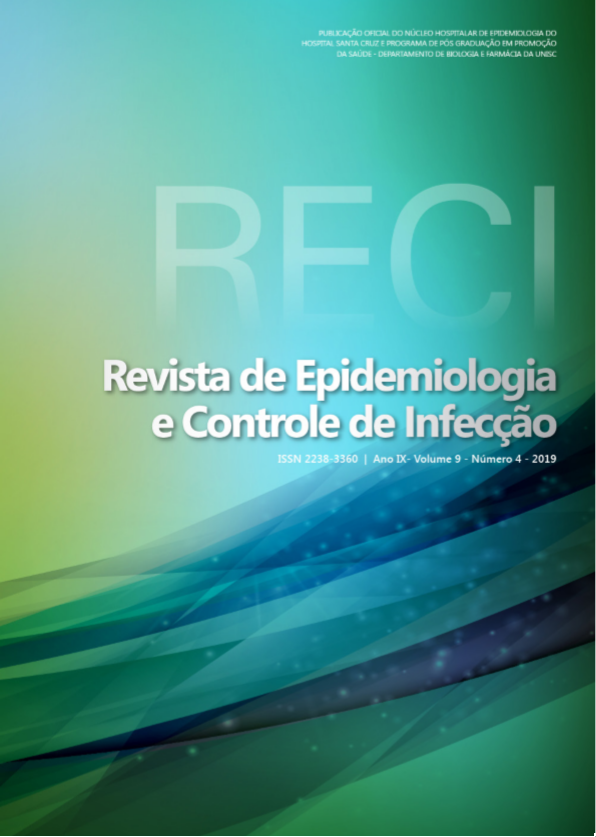Profile of tuberculosis mortality in Brazil, 2001-2011
DOI:
https://doi.org/10.17058/.v9i4.12202Keywords:
Tuberculosis. Mortality. Information Systems. Observational study. Health Profile.Abstract
Background and Objectives: In the health-disease process of tuberculosis (TB), mortality is one of the health indicators that most reflects the social link with the biological aspect. Death from TB is a sentinel event because it is preventable and indicates a failure of the social network and the health system. To describe the sociodemographic and operational characteristics of patients who died of TB and the temporal distribution of the TB mortality rate in Brazil. Methods: A descriptive, cross-sectional, quantitative study performed from the database of the Mortality Information System (Portuguese acronym: SIM), in which all deaths with TB as the main cause registered from 2001 to 2011 were considered. Data analyzed through descriptive statistics. Results: During the study period, 53,747 deaths were recorded with TB as the basic cause. There was a higher percentage of cases of male sex (n = 39,597; 73.6%), mixed race (n=21,697; 40.3%), single marital status (n=23,518; 43.8%), schooling of up to eight years (n=19,443; 36.2%). A higher number of deaths occurred at the hospital (n=43,028; 80.1%) and 19,712 cases (36.7%) received medical assistance before death. The annual crude mortality rate decreased during the study period, ranging from 3.2 to 2.4 deaths per 100 thousand inhabitants. Conclusion: The results show the need for strategies differentiated by sex, age and education at the local level in TB control programs, as well as for planning health promotion and prevention actions available to populations living in these areas.Downloads
Downloads
Published
How to Cite
Issue
Section
License
The author must state that the paper is original (has not been published previously), not infringing any copyright or other ownership right involving third parties. Once the paper is submitted, the Journal reserves the right to make normative changes, such as spelling and grammar, in order to maintain the language standard, but respecting the author’s style. The published papers become ownership of RECI, considering that all the opinions expressed by the authors are their responsibility. Because we are an open access journal, we allow free use of articles in educational and scientific applications provided the source is cited under the Creative Commons CC-BY license.


